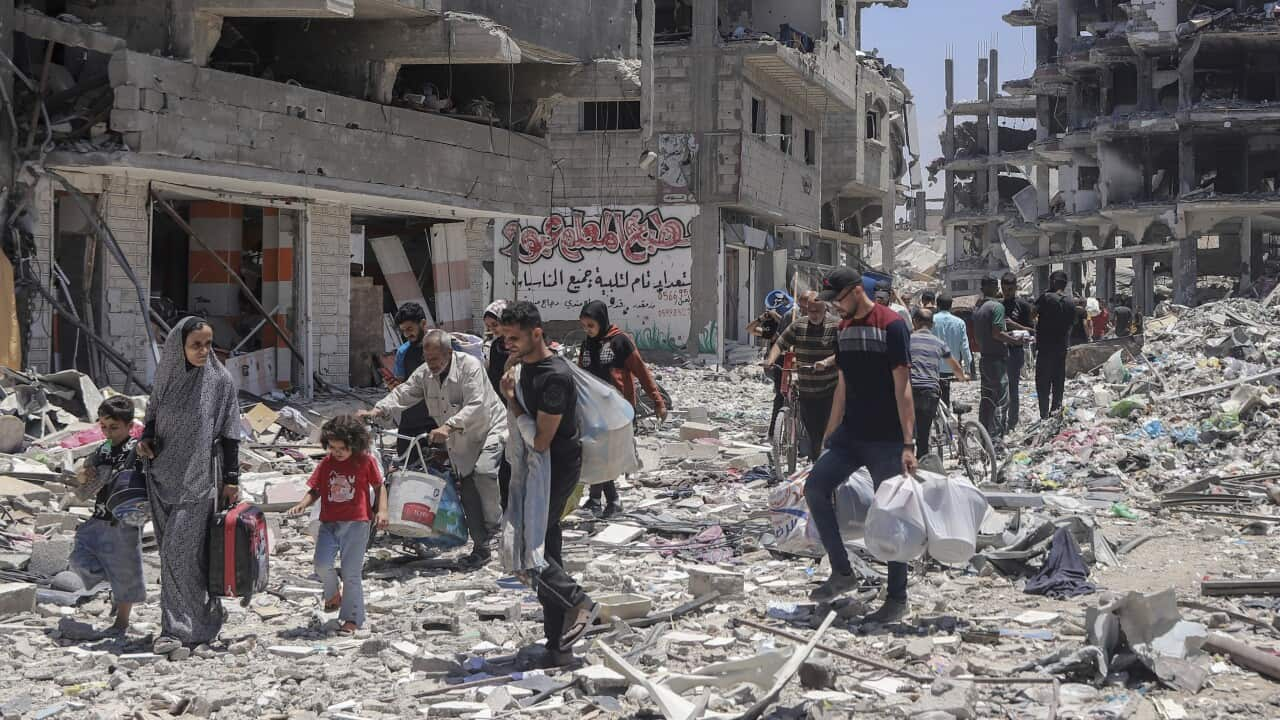There have been nine terror attacks, disruptions or incidents here in 2024 but no plots have been attributed to events in the Middle East, Australia's spy chief says.
Hamas' against Israel and Israel's subsequent retaliation "raised the temperature of the security environment and made the climate more permissive of violence, making acts of terrorism more likely," ASIO Director-General Mike Burgess said.
Religiously motivated violent extremism makes up the majority of ASIO's work but there has been no link between the conflict in the Gaza Strip and terror incidents in Australia, Burgess said.
"To be clear, I'm talking about individuals who follow a perverse interpretation of Islam, not people of Islamic faith," he said.
One-third of the nine cases involved religiously motivated violent extremism, while the majority were motivated by or a mix of ideologies.
All involve young people, alone or in small groups and with simple weapons.
People radicalised quickly and with little warning, which made it harder for the intelligence organisation to track, Burgess said.
The director general expressed concern about the re-emergence of capabilities from terrorist groups al-Qaeda and the self-proclaimed Islamic State.
People at pro-Palestinian rallies in Australia may indicate a violent ideology, Burgess said.
However, "it might just be the actions of a misdirected individual who doesn't really know what they're doing," he said.
"As a security agency, I welcome when individuals fly the flag so to speak and indicate they're someone we should have an interest in," he quipped.
"If people are silly enough to do that ... I personally welcome people declaring their hand."
A person simply "liking" a provocative social media post or supporting a Palestinian homeland wouldn't trigger an automatic adverse security assessment for people on or applying for visas.
But those who support or promote violence or the destruction of Israel could be a direct or indirect threat to security, Burgess said.
His comments came after the spotlight was refocused on Palestinians being granted visas as the coalition maintained people coming from Gaza could pose a security threat.
Questioned whether the federal government should have referred visas to ASIO before they were granted and people arrived in Australia, Burgess said intelligence was ongoing whereas a visa approval was a static point in time.
"We have seen cases where we've checked and they're good and then we learn something that says that is no longer the right decision," he said.




